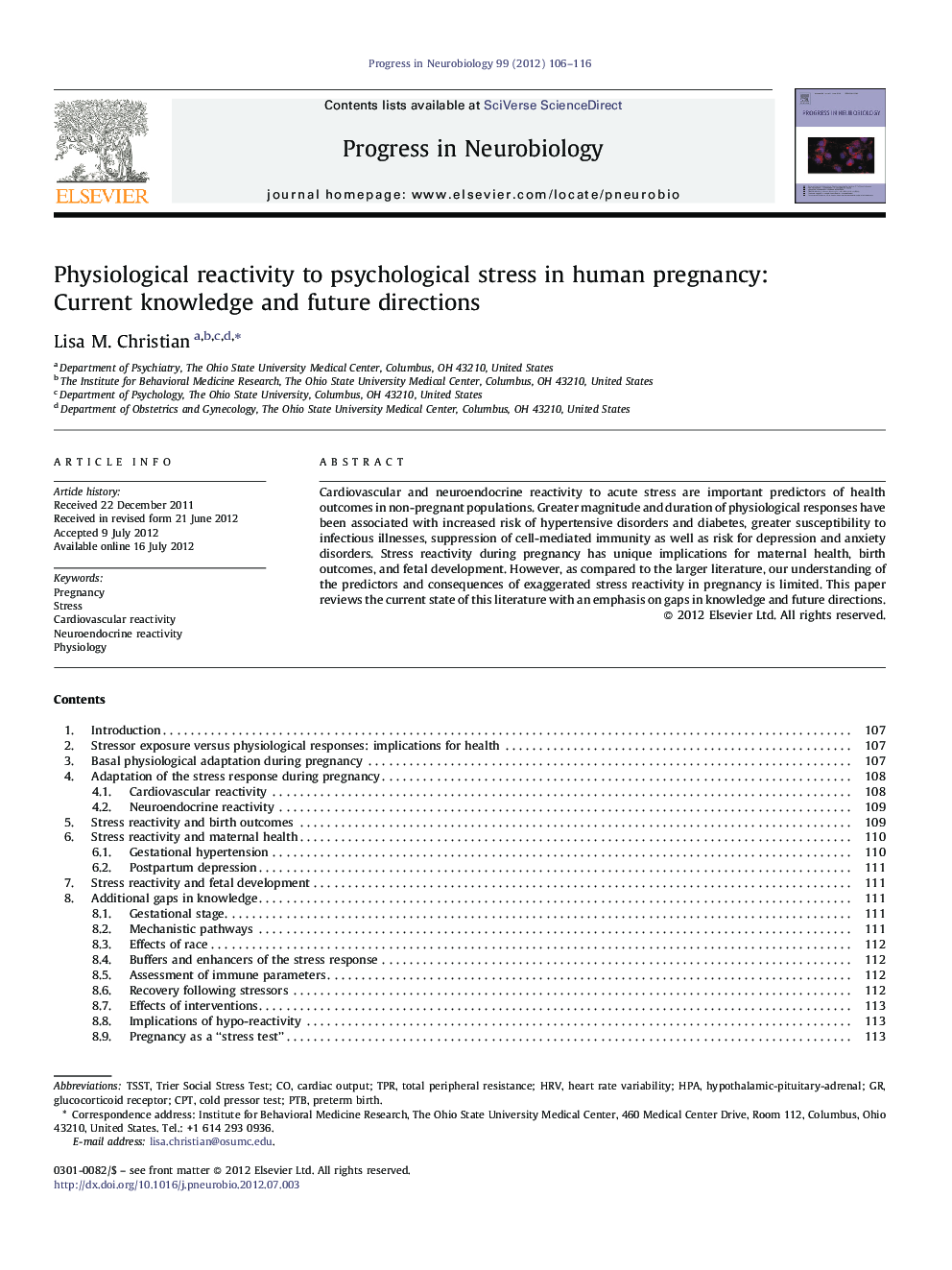| Article ID | Journal | Published Year | Pages | File Type |
|---|---|---|---|---|
| 4353419 | Progress in Neurobiology | 2012 | 11 Pages |
Cardiovascular and neuroendocrine reactivity to acute stress are important predictors of health outcomes in non-pregnant populations. Greater magnitude and duration of physiological responses have been associated with increased risk of hypertensive disorders and diabetes, greater susceptibility to infectious illnesses, suppression of cell-mediated immunity as well as risk for depression and anxiety disorders. Stress reactivity during pregnancy has unique implications for maternal health, birth outcomes, and fetal development. However, as compared to the larger literature, our understanding of the predictors and consequences of exaggerated stress reactivity in pregnancy is limited. This paper reviews the current state of this literature with an emphasis on gaps in knowledge and future directions.
► Physiological responses to stressors predict adverse health outcomes in non-pregnant adults. ► Significant cardiovascular and neuroendocrine adaptation is seen in healthy pregnancy. ► Stress responses in pregnant women may affect birth outcomes and maternal/fetal health. ► Explication of predictors and consequences of exaggerated stress reactivity in pregnancy is needed.
